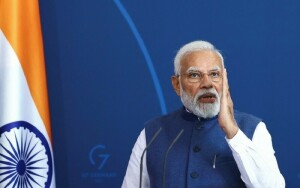DURING President Donald Trump’s recent three-nation visit to the Middle East reports in the international media suggested he had sidelined Israel in decisions taken there or just ahead of his trip. For good reason.
The slew of actions he took would certainly have troubled Prime Minister Benjamin Netanyahu. Washington lifted sanctions on Syria and Trump met with Syrian President Ahmad al-Sharaa in Riyadh, praising a man who previously had a US bounty on his head. Trump also praised Turkiye’s President Tayyip Erdogan, another of Israel’s adversaries, whose advice to lift sanctions he said he listened to. Netanyahu had urged Trump not to end sanctions.
Trump also forged a truce with the Houthis in Yemen with both sides agreeing to halt military strikes against each other. This too bypassed Israel. Trump secured the release of the last remaining American hostage in Gaza after direct talks between the US and Hamas. But what would have worried Tel Aviv the most was Trump pursuing direct nuclear negotiations with Iran, which Israel vehemently opposes.
There are reports now of US receiving ‘new’ intelligence about Israel making preparations for a military strike on Iranian nuclear installations. If Israel takes this reckless course, it would sabotage Trump’s diplomatic efforts and damage Netanyahu’s relations with Washington, especially as Trump recently told Netanyahu in a phone conversation that talks were moving in the right direction.
Writing in the Financial Times Kim Ghattas saw Trump’s Middle East moves “springing surprises on Netanyahu [and] cutting Israel out of the deals it is making”. She pointed out that Trump’s patience with Netanyahu was running out even though the “decades-long alliance between Israel and the US will endure”. Other commentators referred to the Israeli prime minister being downgraded to a “spectator” during his visit as Trump moved closer to Israel’s enemies.
Despite all this Trump has been unable or unwilling to get Israel to halt its genocidal war on Gaza even though he has long wanted a quick end to the conflict. Although the White House has warned Netanyahu he would be on his own if he continued the war, Israel has expanded its military offensive in Gaza and continued to block humanitarian aid.
With Palestinians being killed every day by air strikes, Netanyahu has threatened to take over all of Gaza ostensibly to “destroy Hamas once and for all”. Additional military forces have been deployed to carry out Israel’s Gideon’s Chariots offensive targeting both southern and northern Gaza, whose aim is to push Palestinians out of the strip. Hundreds of thousands are again being forced from their homes. Forcible displacement of people outside Gaza has long been Netanyahu’s aim.
This has created a catastrophic situation and worsened the humanitarian crisis, forcing millions of Gazans into starvation. The Israeli offensive and blockade of humanitarian aid has provoked an international outcry. UN Secretary General António Guterres called this dire situation “beyond description, beyond atrocious and beyond inhumane”. Demanding an end to the blockade he said, “The entire population is facing the risk of famine.”
Even Israel’s closest Western allies lashed out against Tel Aviv. In a joint statement, France, the UK and Canada condemned Israel’s military escalation in Gaza and the West Bank, and threatened “concrete actions” including targeted sanctions, if Israel did not end its offensive and lift aid restrictions. The EU announced it would review its trade relations with Israel while countries such as Spain called for tougher action including sanctions.
Twenty-three countries issued a joint statement calling on Israel to allow aid into Gaza and warning that people faced “starvation”. Under mounting pressure, Israel permitted some aid into Gaza but this was slammed as wholly inadequate by the international community.
The response from Amnesty International was telling: “It is outrageous and morally reprehensible that it took the world nearly 80 days of broadcast starvation and cruelty amidst genocide to exert enough pressure on Israel to even slightly ease its total siege that has blocked the entry of all food, medicine, fuel and other vital goods.”
Meanwhile, efforts to renew the ceasefire between Hamas and Israel are going nowhere at Doha. Despite the Trump administration’s unease with the lack of progress in the talks it has been unable to goad the Israelis in that direction. This seemed a factor behind US Vice President J.D. Vance’s recent decision not to visit Israel this month. Although talks have continued after Israel launched its offensive, Netanyahu has little interest in a truce. He unilaterally broke the ceasefire in March and has repeatedly declared he will not end the war until “total victory” is achieved over Hamas.
This leaves Gaza facing more bloodshed, displacement and devastation. The US-backed Israeli plan to manage and deliver aid to Gaza is hugely controversial and entails establishing a few central distribution sites where people will have to travel from long distances. These hubs will be secured by the military and private armed contractors.
A Swiss-incorporated company, the Gaza Humanitarian Foundation, will manage the centres. The UN has denounced the plan as a tool for more displacement, which is a war crime. The UN aid chief also said this makes “starvation a bargaining chip”. UN agencies have refused to be part of this arrangement. Humanitarian organisations have condemned the ‘militarisation of aid’.
With Israel embarked on a relentless military campaign to seize and permanently occupy all of Gaza, its far-right finance minister Bezalel Smotrich told a news conference the goal is to “destroy everything that’s left of the Gaza Strip” and force the population out of ‘combat zones’. From there, he said, “the population will reach the south of the Strip, and [then] move to third countries under President Trump’s plan”. Meanwhile, Netanyahu has said he will end the war only if Hamas releases all hostages and Trump’s plan to relocate the population outside Gaza is implemented.
It is now incumbent on Washington to clarify if Israel is really carrying out Trump’s plan. This is necessary because if untrue it would put pressure on Israel to stop the offensive. If true, it would make a mockery of the image Trump is seeking to cultivate as a man of peace.
The writer is a former ambassador to the US, UK and UN.
Published in Dawn, May 26th, 2025















































